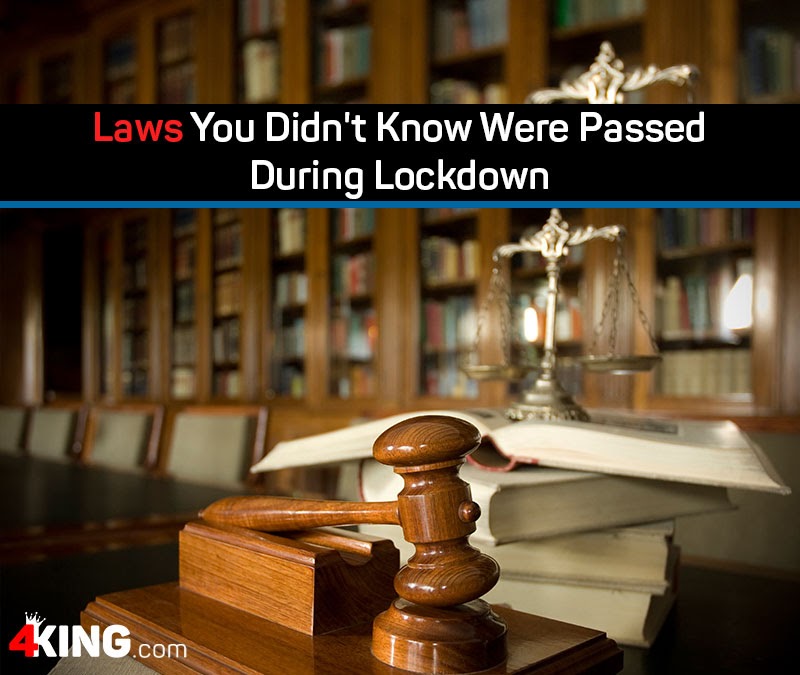In the wake of the Coronavirus pandemic, there has been a push by governments to pass various laws and legislature. There has been a flurry of emergency decrees rolling out worldwide under the guise of ensuring public safety. This is predominantly justified, as we’ve seen how Covid-19 lockdowns have been implemented across the globe. However, aside from the necessary safety protocols undertaken, laws are being passed hastily and without general public knowledge. Some that are incredibly restrictive and in many cases a little suspect. The question being, are they beneficial to the greater good of the people? Or are they being drafted to serve governmental self-interest? Let’s do a run-down of all the laws you didn’t know were passed during lockdown and try to determine if we should be concerned.
South Africa’s 0% Drunk Driving Tolerance
The party is over for drivers in South Africa, with a law being passed that prevents them from having even a single drink before getting behind the wheel. The bill takes on a strict zero-tolerance policy to drunk driving, meaning there sadly won’t be any sundowners on the horizon for the whole of the country. In the past, drivers were permitted to drive if their blood alcohol level was anything under 0.05g per 100ml, but no longer. Now, if you’re caught with an iota of booze in your system it is punishable as a criminal offense. Not only this, but if you happen to get into an accident and you’re over that 0% limit, the repercussions go beyond the legal. Your insurance will also be jeopardized, as insurers can legally decline to pay accident claims if any percentage of alcohol is found. While this law may prove to be inconvenient to some, South Africa is known for its high rate of drunk driving-related accidents which this new regulation will likely help curb dramatically.
UK Coronavirus Act
Most people wouldn’t raise an eyebrow at a legislature that has been named as part of countermeasures to contain Covid-19. However, this particular act was rushed through parliament with such haste that some fear it was not adequately critiqued before being implemented. The act is said to give the police and border agents such massive liberties that they could easily begin to abuse their new powers. Already, several cases have come to light where UK citizens have been unjustly persecuted in the name of the new law. This makes it clear that there is great potential for a miscarriage of justice, as Britain implements rulings that border on the draconian. So, while many might be aware of the act itself, the implications of it have been far-reaching and deeply concerning.
Israel Cell Phone Data Tracked By The Government
Much like how China utilized facial recognition in the name of maintaining public safety, Israel’s prime minister Benjamin Netanyahu has employed an equally questionable tactic. In March he authorized the internal security agency, Shin Bet to use software developed as a counter-terrorism measure to track citizens’ cell phones. Many have criticized this measure as a disproportionately severe reaction to the threat of Covid-19, as it infringes on the basic civil liberties and personal security of the public. Netanyahu employed this bold strategy in the same breath that he closed his nation’s courts, supposedly to aid in protecting his people. The fact that he happened to do this the very week he was supposed to be on trial for bribery and fraud, was treated as entirely coincidental. The tactics undertaken by Israel’s government are a glaring example of an abuse of power, done in the false name of countering the pandemic.
Covid-19 is changing not only the social but political landscape of the world. As some governments use this period of unrest to fast-forward legislation that is arguably beneficial to society, others have manipulated the state of emergency to fit their own, selfish ends. Perhaps these are laws you didn’t know were passed during lockdown, perhaps you did. But at the end of the day, it is important to remain vigilant and be critical of the measures our governments are taking in the name of our safety. Because it is all too easy for them to use our fear to make opportunistic jabs at our rights.


